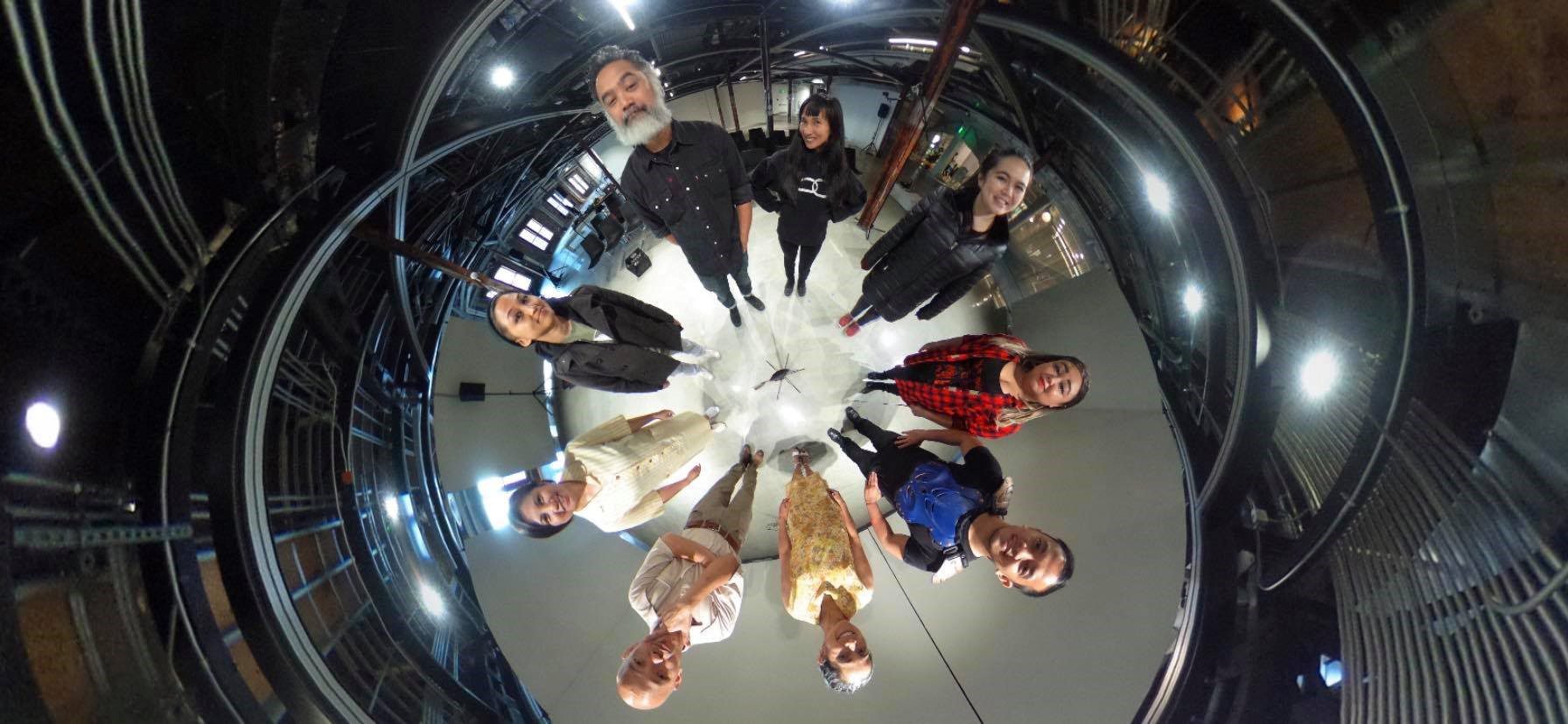Pictured: A scene from filming Maria TV
Between combating stereotypes, challenging homogenous media, and telling stories of people with “invisible jobs,” the experimental documentary Maria TV has a lot to accomplish. But director Rodrigo Valenzuela, using real life stories and people, is creating something that will provoke these existing ideologies.
Maria TV is a response to the way many Hispanic women, especially domestic workers such as nannies and maids, are portrayed in media. Valenzuela has gathered 15 Hispanic women from the Seattle area, and facilitates activities on camera that they might not normally interact in, to tell their real stories, and to start to understand the impact that television has had on their understanding of the world.
There are a few ways that Rodrigo aims to bring the lives of these women to the screen. One is through interviewing, asking them to talk about their backgrounds, jobs, experiences, and life. Another is bringing in acting coaches, and having them do theater exercises with the women, such as fluid sculptures and play back theater. The third way is to have these women take roles in television shows that misrepresent them. He sets this up by having a telenovela play behind them, and letting them interact with the dialogue, especially with the male characters. The main goal in this whole project is to empower women, to put real people on the screens, instead of showing a façade of life that the telenovelas normally show.
When Rodrigo reminisced about growing up watching telenovelas in Chile, he recalled that the series finale of some of the shows were as big as an important soccer game, so it’s not surprising what an influence this has been on his, and others, lives. Another big influence on Maria TV was Valenzuela’s own maid back home. She was hired when he was one month old, and is still working for his family in Chile today. He speaks incredibly highly of her, as being so smart, kind, and overall, as an incredibly positive influence on his life, but he does question the issue of class relations in regards to nannies and maids in general, which is another aspect that he wants Maria TV to touch on.
Valenzuela is currently finishing up filming Maria TV, and is attending a spring residency in Vermont studio center to edit and complete the film. This summer he is planning on screening the documentary at Northwest Film Forum. before going in residencies at Center for Photography at Woodstock and the Bemis Center for Contemporary Arts. Stay tuned for updates on Maria TV!
Photo courtesy of Rodrigo Valenzuela.
The CityArtist program supports the development and presentation of work by independent Seattle-based artists. The Office of Arts & Culture will post/share stories about the CityArtist’s works in-progress based on interviews and site visits by staff members Annie Holden and Irene Gómez. Learn more about the CityArtist grant here, and read more CityArtist stories here.



